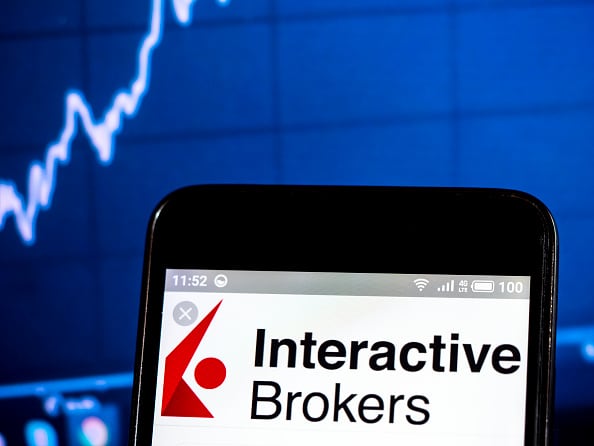This post was originally published on this site

In this photo illustration, the Interactive Brokers LLC logo seen displayed on a smartphone.
Igor Golovniov | LightRocket | Getty Images
Market action around the election is expected to be so volatile that Interactive Brokers is forcing clients to put up more money in order to trade using leverage.
The retail broker is increasing margin requirements — how much money an investor using leverage and derivatives has in their brokerage account after a stock purchase — heading into the November presidential election, according to a clients letter obtained by CNBC.
“Elevated option implied volatilities indicate that the markets will be confronting elevated volatility both before and after the November 2020 election,” the note said. “IBKR shares that sentiment and believe it’s appropriate to start controlling leverage in a measured fashion in advance.”
A margin account contains money that a broker lends an investor to buy stocks, options and ETFs. The margin requirement is the smallest amount of money than an investor must have in their account after they buy a certain security. There are standard Financial Industry Regulation Authority (FINRA) requirements but brokers option slap on a higher minimum for their own security.
Interactive Brokers— which serves 876,000 broker accounts — typically has a 50% initial margin requirement and a 25% maintenance requirement. The new levels bring the initial requirement to 67.5% and a maintenance requirement of 33.75%.
Traders are expecting elevated volatility ahead of the 2020 election between incumbent President Donald Trump and Democratic nominee and former Vice President Joe Biden. The Cbeo volatility index, an gauge of investor fear, currently sits around 26, but is expected to jump above 32 in November, according to futures pricing. Wall Street generally views Trump as good for the economy, but his trade relationship with China as too delicate. Investors expect Biden to raise the corporate tax rate and push health care legislation that would dent public health providers. Plus, both candidates are facing a pandemic and flurry of social justice protests.
The chances of a contested election are also on the rise, as more people are expected to vote by mail because of the coronavirus pandemic. This means it could take longer for the official results to be determined or could result in discourse over voter fraud.
“Option prices indicate expectations of an extended period of high volatility beginning around Election Day and lasting for months thereafter,” Goldman Sachs said in a note to clients last week. “Implied volatility jumps around Election Day, pricing an S&P 500 move of nearly 3%, and the term structure remains elevated well into early 2021.”
Interactive Brokers said the increase will be implemented gradually each day starting on September 28 and reaching the new level by October 23.
In April, the broker said it took an $88 million hit when crude oil collapsed to the unprecedented negative price of $37.63 per barrel and a handful of its traders were caught in long positions in excess of the equity in their accounts.
“We are continuously evaluating the current market environment and our margin requirements are a reflection of that,” Steve Sanders, EVP of marketing and product development at Interactive Brokers, told CNBC.
Subscribe to CNBC PRO for exclusive insights and analysis, and live business day programming from around the world.
— with reporting from CNBC’s Senior Markets Commentator Michael Santoli.



